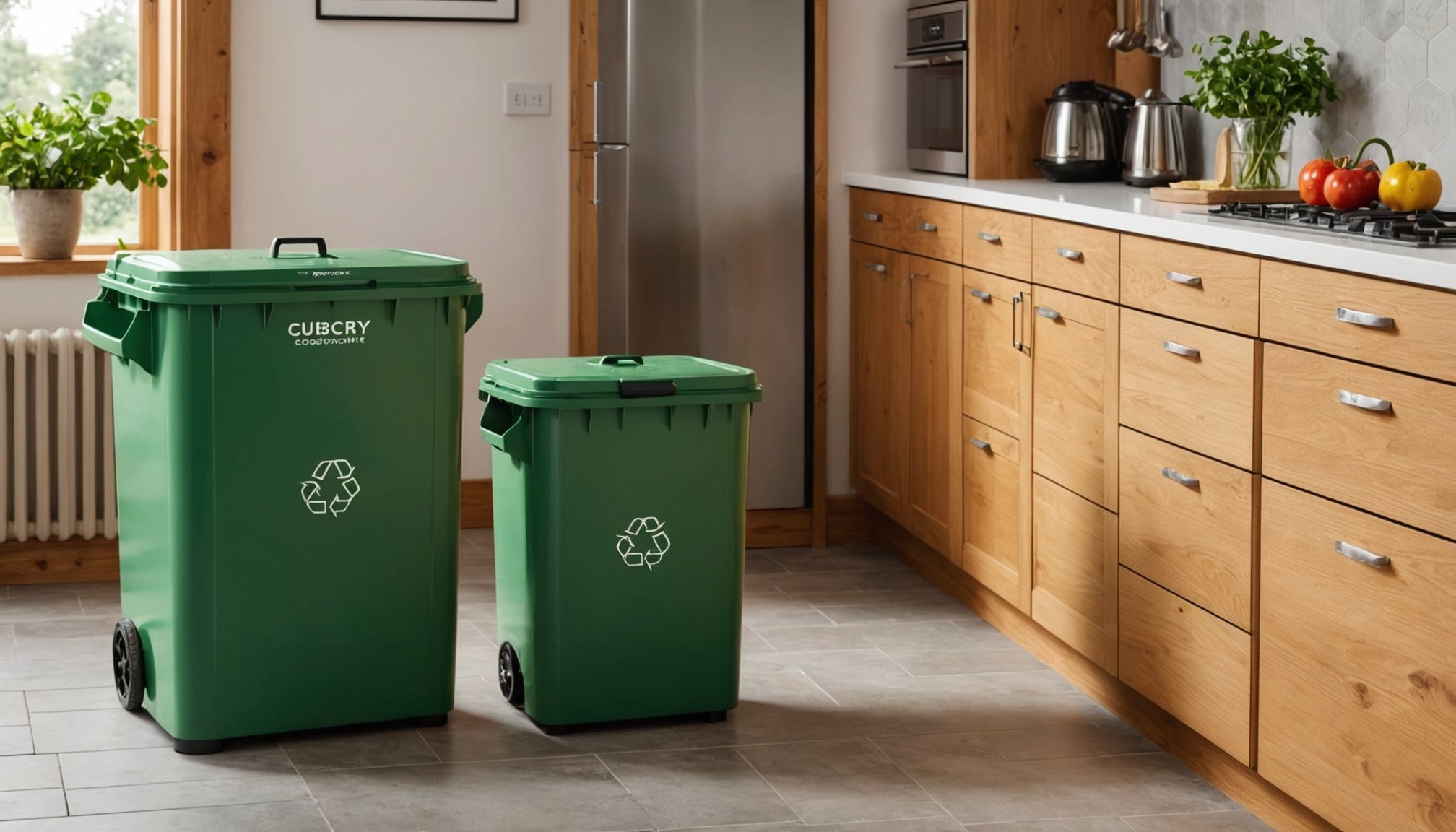Overview of Kitchen Composting
Kitchen composters play a crucial role in reducing waste and promoting sustainable living. By transforming food scraps into nutrient-rich compost, these devices help decrease the amount of waste sent to landfills. The importance of reducing landfill waste cannot be overstated, as it directly impacts greenhouse gas emissions and environmental health. Embracing eco-friendly composting practices is a significant step towards adopting a more sustainable lifestyle.
Composting not only benefits the environment but also encourages a deeper connection with nature and our immediate surroundings. By using kitchen composters, individuals contribute to sustainable living by recycling organic waste back into the soil, enhancing its fertility and health. This practice supports the growth of healthy plants and reduces dependency on chemical fertilisers, fostering an eco-friendly cycle of growth and use.
Have you seen this : Unlock culinary precision: the ultimate guide to selecting the ideal kitchen timer in the uk
For eco-friendly composting, there are several methods and sustainable practices to consider. Choosing the right type of kitchen composter is essential. Factors like space, waste volume, and maintenance levels help guide the decision. In addition, simple actions like maintaining a balanced compost pile and avoiding materials that don’t decompose, such as certain plastics, can make a huge difference. Embracing these practices paves the way for a greener future.
Top Eco-Friendly Kitchen Composters in the UK
Exploring the best kitchen composters in the UK, it’s essential to consider the range of eco-friendly brands and their composting solutions. These composters vary significantly in features, catering to diverse user preferences and sustainability goals.
In parallel : Ultimate guide to maintaining oak worktops in your uk kitchen: must-know tips for longevity and care
Brand Comparisons
In the UK market, several leading brands offer unique features and sustainable practices. Examples include brands with advanced eco-certifications and innovative designs that enhance composting efficiency. Comparing features like size, durability, and automation can help consumers choose the ideal kitchen composter.
Product Reviews
In-depth user reviews provide insights into the performance and efficiency of top models. Many users appreciate composters with user-friendly interfaces and compact designs, enhancing their kitchen aesthetics. Testimonials highlight longevity and low maintenance, crucial for sustainable usage.
Pricing and Value Comparison
Pricing varies across different brands, often reflecting the features and materials used. While some models may seem costly initially, they prove economically viable long-term due to savings on waste management and fertilizers. Understanding value propositions is key to selecting a cost-effective composter.
Selecting the right eco-friendly kitchen composter ultimately involves evaluating features, user feedback, and cost implications to align with both personal and environmental priorities.
Installation and Usage Tips for Kitchen Composters
Installing and using a kitchen composter efficiently requires understanding the process and avoiding common pitfalls. With the right guidance, you can make composting a seamless part of your daily routine.
Installation Guide
Start by determining the ideal location for your composter, considering factors like accessibility and ventilation. Follow the manufacturer’s specific instructions, ensuring all components are secure and functional. A well-installed composter encourages optimal decomposition, leading to better results.
Best Practices for Usage
Effective composting relies on a balance of green and brown materials. Green materials, such as fruit and vegetable scraps, provide nitrogen, while brown materials, like dry leaves, supply carbon. Maintaining this balance is crucial for a healthy compost pile. Regularly turn the compost to aerate it, promoting faster breakdown and reducing odours.
Common Mistakes to Avoid
Avoid adding non-compostable items, like plastics and meat, which can disrupt the process and attract pests. Overloading the composter or compacting materials too tightly can hinder aeration and slow decomposition. Carefully follow the guidelines for your specific model to maximise efficiency and sustainability.
By embracing these tips, you can ensure your kitchen composter remains a valuable asset in your journey towards sustainable living and waste reduction.
Enhancing Sustainability Through Composting
Ensuring sustainable practices in kitchen waste management is crucial for an eco-friendly lifestyle. Composting serves as a bridge to sustainable habits by efficiently reducing kitchen waste and contributing to a healthier environment.
Additional Eco-Friendly Practices
Apart from composting, reducing kitchen waste involves several mindful actions. Simple measures like planning meals carefully, storing food properly, and buying only what is necessary can dramatically decrease waste. Integrating these practices with composting creates a holistic approach. Furthermore, community composting initiatives in the UK provide excellent opportunities for involvement. These initiatives allow individuals to contribute to larger composting projects, benefiting local environments and fostering community connection.
Recipes for Composting Success
A successful compost pile requires the right balance of materials. Kitchen scraps like fruit peels, coffee grounds, and eggshells offer rich nutrients for composting. It’s imperative to maintain a balance of green and brown materials. Mixing grass clippings with dried leaves ensures optimal decomposition. Additionally, some tips to hasten the composting process include regularly turning the pile to aerate it and maintaining adequate moisture levels.
Importance of Local Composting Resources
Local resources can significantly enhance composting efforts. Many communities offer drop-off points for compostable materials, making it convenient for those unable to compost at home. Engagement with local gardening clubs or sustainability workshops further strengthens understanding and participation in eco-friendly practices.








